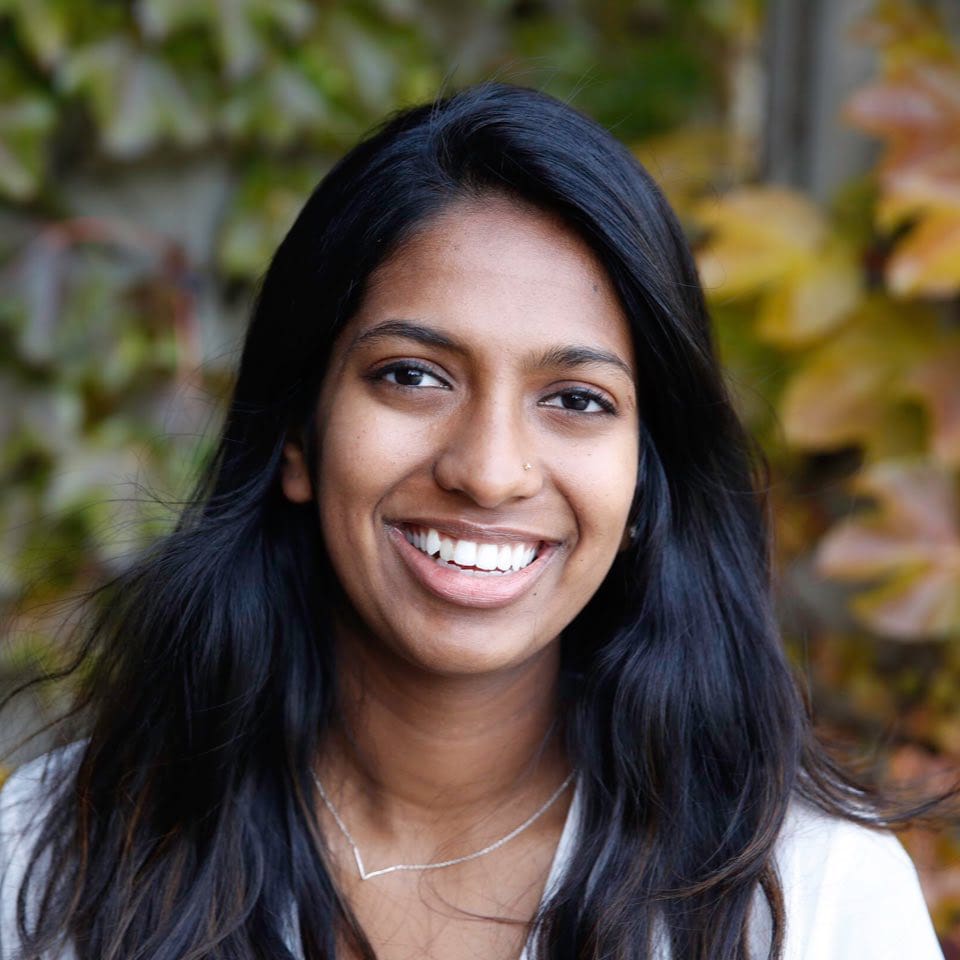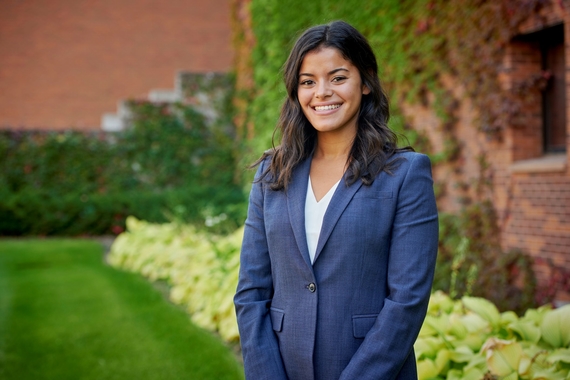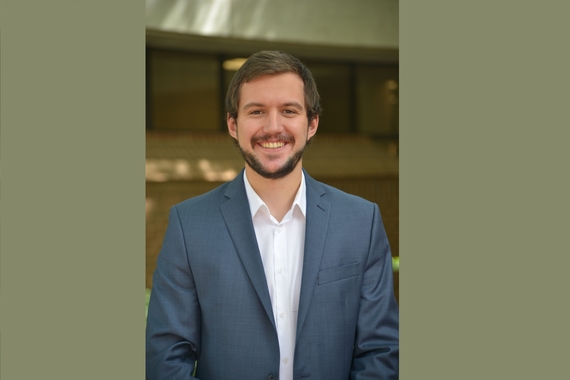Malvikha Manoj

Share your educational background, including degree(s), institution(s), undergraduate major and graduation year(s).
BS in Psychology, with minor in Public Health. University of Minnesota, Twin Cities. Graduation Year: 2019.
Tell us about your work. This may include job title or organization, projects you're involved in, populations with whom you work, etc.
I'm currently pursuing my graduate education at the Johns Hopkins Bloomberg School of Public Health. I'm an MSPH Candidate in the Department of International Health, with a focus on Health Systems. I am hoping to work within the field of mental health and in designing and evaluating programs that address the mental health crisis in climate change refugees or broadly, the refugee resettlement process.
What led you to this profession? Tell us about your path.
I started my undergraduate journey at the U with broad interests in psychology and neuroscience. However, I was very conflicted about what I wanted to really do with these interests. I started by getting more involved with the research that was being conducted by the Department of Psychology here, and from there, I got to experience a wide range of experiences including research, student leadership, shadowing and more. These experiences led me to public health in a way in which I am still using my interests in psychology and neuroscience, but just in a way that also aligns with my strengths and career goals.
What is your advice for current CLA students interested in a health care career?
My advice to CLA Students interested in a health care career would be to know your "why" and to seek opportunities that help you answer that question. Throughout my journey, my "why" was my guiding compass. With every opportunity I was seeking and/or saying yes to, I kept asking myself if it aligned with that single question. Especially when it comes to the field of health care, I think it's so important you know why you want to do what you want to do. Also, there is not just one right path to a career in health care. There are literally hundreds of them. Know your strengths and what you care about the most. Maybe medicine is where that sits, but honestly, maybe not. And that is not a bad thing - that is a great thing! Explore your options. There is absolutely nothing wrong with changing your mind half way through your undergrad experience. Especially when it comes a career in healthcare, I think it is so important that you seek opportunities that can help you model your future life: shadowing, research, volunteering at hospitals, talking to healthcare professionals, etc. Because you don't want to commit and start this journey if you're not sure about it - that is one advice I got from a doctor I shadowed a while ago - he told me he never really doubted that he wanted to become a doctor, that he was sure of it. And that confidence he had was something I kept trying to search during my time exploring health care careers, and is something I finally found within the field of Public Health. Another piece of advice that I received and made a huge impact on my career exploration was from a faculty member, who told me that the experiences we naturally gravitate toward in life can give us huge clues regarding what we want to pursue professionally. This too became a guiding compass for me, and I hope it helps you too. Dig a little deeper, try to see what experiences make you feel most (and excuse how corny this is) alive! Seek out as many opportunities as you can in order to help answer these internal questions and conflicts you have. I realized that I felt most inspired, alive and energized when I was working on initiatives that were really dealing with public health challenges and how to address those. Let that energy be your guide.
Describe your participation in extra-curricular activities, volunteer work, research, or study-abroad opportunities during your undergraduate years that helped you prepare for your current role.
Some of the most shaping experiences that led me to public health happened outside of class, although the classes I took laid a strong foundation from which I drew inspiration and knowledge throughout my undergraduate career. Working in research labs with faculty that were studying fascinating topics within brain injury and trauma, surgical oncology, depression, cognitive psychology, as well as discrimination and migration, gave me a breadth of knowledge I am really grateful for, as well as analytical skills that help me till date. Another experience that I am really grateful for was being a part of the CLA Student Board, which is the official undergraduate government for the College of Liberal Arts. The CLA Student Board helped me in several ways. One, it helped me find my community here in CLA. I was surrounded by people who inspired me, challenged me, supported and shaped me. Two, it helped me grapple with complex issues in the leadership and management realm - how do you resolve conflict effectively? how to be a friend and a leader? what does leadership mean to me? Three, it helped me network and develop relationships with administration and explore more of the big picture thinking skills that I now use in my public health career. Further, working as a Peer Advisor in CLA Advising helped me connect with students in CLA and be a peer mentor to help them through some of the challenges I myself confronted during my time here. In conclusion, each of these experiences and others I had the opportunity to partake in helped shape me into the aspiring public health professional I am today.
What experiences did you have that confirmed your choice of profession?
My work on the CLA Student Board, the classes I took (especially SOC 1001 and liberal education classes) as well as the Global Health Case Competition that happens every year through the Center for Global Health confirmed my choice of profession. The Global Health case competition provides a platform to really apply public health skills to analyze, design and present a solution to complex public health issues, and working through cases in sex trafficking, refugee mental health crisis and climate change health disasters really helped reinforce my choice of profession.
What kinds of obstacles have you encountered in pursuing your goals, and how did you overcome them?
Some of the obstacles I encountered personally was that I did not really have a model to follow when it came to getting to where I am at now. No one in my family had travelled abroad to pursue their higher education so I didn't have a role model there, and public health was a relatively new field for someone coming from where I am coming from. In Dubai, where I was raised, and in India, where I was born, public health is still a wildly new concept, although now that I ponder over it, I don't think health exists outside the contexts of public health - so I think it is more an issue of awareness than existence. Anyway, when I was first exposed to public health, I had to get out of my own head and take a leap into faith - I wasn't sure what exactly I was signing up for, but I knew it made sense to me. I overcame that internal conflict by following my gut instinct, by meeting and talking to as many people as I could that had done similar or even remotely similar things as I wanted to, by saying yes to more opportunities that gave me a platform to explore and challenge myself, and by taking a breadth of classes that helped push me forward with my thinking and understanding.
Did anyone encourage or discourage you from pursuing your goals? How did you overcome that obstacle?
My family, my CLA community, including administration, faculty, co-workers, advisors and my peers really encouraged me to pursue my goals. I think it is so important that you surround yourself with the right people. I cannot imagine being where I am now or doing what I am doing, if it weren't for my family, friends and my colleagues and mentors being so encouraging, pushing me and believing in me through every step of the way. My family had to make many sacrifices that enabled me to be here and have the experiences that I had the privilege to have, and even when I was switching between professional goals, they were patient with me and supported my decisions despite uncertainties at some points through the process. They always had my back and that really meant a lot to me and gave me a lot of strength to go through my journey. There were definitely people that discouraged me too, but I think my response to that has been to decide whose opinions mattered to me and whose I could listen to but shelf away. In the end, I think I had the privilege of having a support system that really helped elevate me and encourage me and that mattered a lot.

